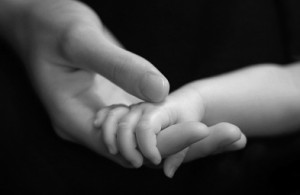“Fathers shall not be put to death for their children, nor children for their fathers; each is to die for his own sin.”
Deuteronomy 24:16 (NIV)
In the United States, the death penalty is not enforced for rape—at least for the rapist.1 Sadly, a baby conceived from rape is often in greater danger than is his criminal father. In the midst of the legitimate desire to comfort a woman who has suffered the pain of a terrible crime, some may unwittingly heap tragedy on top of tragedy. In the name of compassion, an unborn baby is handed a death sentence for his father’s sin.
 This law from Deuteronomy falls in the middle of an entire chapter dedicated to protecting the weak. As God’s covenant people, Israel was to be different, not living in the same self-absorbed, greedy manner as her neighbors. God intended them to take special care of the most vulnerable people among them—aliens, widows, orphans, and especially the poor. Verse 16 continues this theme. Law codes in the ancient Near East commonly allowed for an offender’s children to be executed alongside him. Establishing a basic principle of justice for His people, God rejected that precedent and commanded His people to exact punishment only on the guilty. The innocent should not be compelled to suffer.
This law from Deuteronomy falls in the middle of an entire chapter dedicated to protecting the weak. As God’s covenant people, Israel was to be different, not living in the same self-absorbed, greedy manner as her neighbors. God intended them to take special care of the most vulnerable people among them—aliens, widows, orphans, and especially the poor. Verse 16 continues this theme. Law codes in the ancient Near East commonly allowed for an offender’s children to be executed alongside him. Establishing a basic principle of justice for His people, God rejected that precedent and commanded His people to exact punishment only on the guilty. The innocent should not be compelled to suffer.
This principle applies clearly to the child conceived in rape. The infant is not culpable in this horrible crime, which has already victimized the woman. To make the unborn a second victim cannot be God’s desire.
Many women understand this. A majority of those who find themselves pregnant from rape choose to bring the baby to term.2 Since abortion advocates repeatedly raise the case of rape, it is important to note that conception from this crime is very rare in the West.3 Equally rare in Western contemporary culture is the level of moral heroism the victimized mother shows in sustaining rather than ending the life of the child.4 The Church brings honor to God when it honors her.
Honor, though, is not enough. The people of God are also called to surround both mother and child with care, including the basics of life, the blessings of friendship, and, if needed, provisions for adoption. Through this, the Church helps turn the mother’s eyes from a bitter past to a grace-filled future, both for the child and herself.
———————————
Endnotes
1 Florida, Louisiana, Kentucky, and Montana have laws that allow the death penalty for certain categories of rape (i.e., rape of a minor), however, these laws have not been enforced since 1964.
2 David C. Reardon, Julie Makimaa, Amy Sobie, eds. Victims and Victors: Speaking Out about Their Pregnancies, Abortions, and Children Resulting from Sexual Assault (Springfield, IL: Acorn Books, 2000). See also, Sandra Kathleen Mahkorn, “Pregnancy and Sexual Assault,” The Psychological Aspects of Abortion, eds. David Mall and Walter F. Watts (New York: University Publications of America, Inc., 1979).
3 Mark H. Beers and Robert Berkow, “The Medical Examination of a Rape Victim,” in The Merck Manual of Diagnosis and Therapy (Whitehouse Station, NJ: Merck, 1999), http://www.merck.com/mrkshared/mmanual/section18/chapter244/244a.jsp. See, Section 18, Chapter 244.
4 Tragically in war torn regions of the world, women suffer the double trauma of rape as a deliberate act of humiliation and degradation by an enemy.